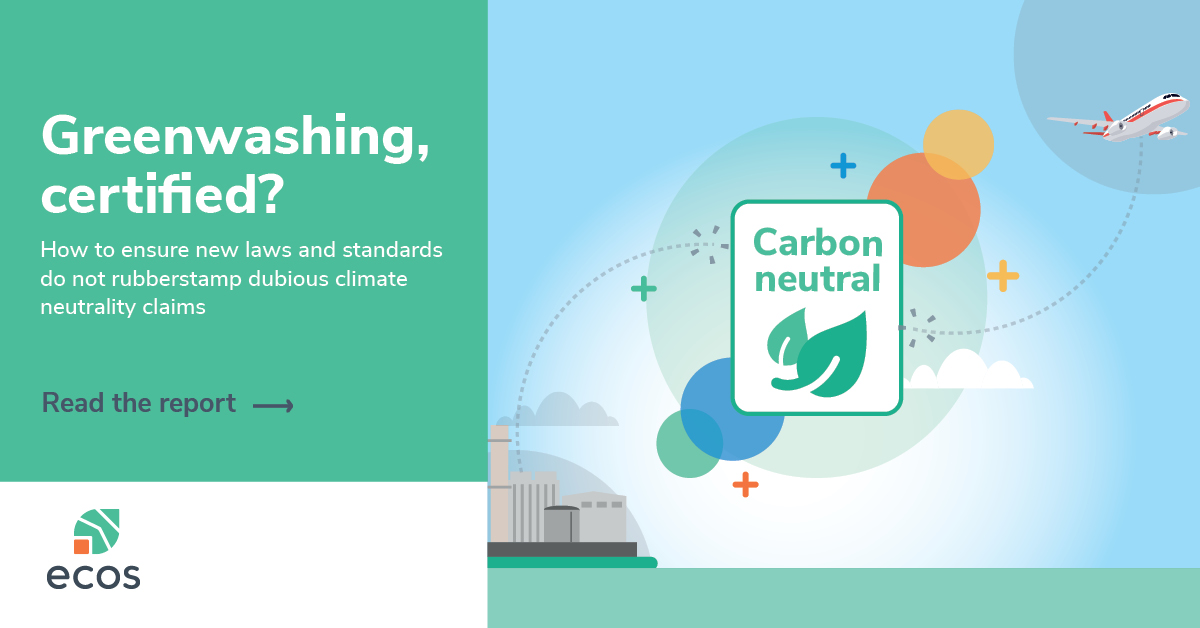REPORT – Greenwashing, certified? How to ensure new laws and standards do not rubberstamp dubious climate neutrality claims
Claims of ‘climate neutrality’ have become omnipresent in products and services. But are they credible, and should we believe them? This ECOS report will help policymakers and standardisers make the right choice and ensure that climate neutrality claims become a thing of the past.

Recent investigations show that we should not: climate neutrality claims are not credible, and we should not believe them.
Of the 24 companies evaluated in the 2023 Corporate Climate Responsibility Monitor report, not a single one achieved a high integrity rating, with only one scoring reasonable integrity. The study found that nearly all claims relied on loopholes or tricks to exaggerate their ambition and company climate targets.
Regulations and standards need to be crystal clear regarding reliable marketing. Thankfully, legislators and standardisers have started to work towards tackling climate claims. The difficulty, however, lies in the approach. Instead of proactively shaping ambitious legislation, policymakers are reactive to a situation that is already out of control while the market is trying to enshrine misleading practices into international standards.
ECOS report explains why climate neutrality claims are deeply problematic and what businesses can do to communicate their climate action instead. The report then looks at the relevant EU legislative initiatives and how to ensure they do not miss the mark. Finally, it shows the latest developments in the International Standardisation Organisation (ISO), which are heading towards legitimising and providing a framework for misleading practices through the upcoming ISO standard on carbon neutrality – only to support our view that climate neutrality claims should not be allowed by law.
Read the full report, HERE.
Download the document

